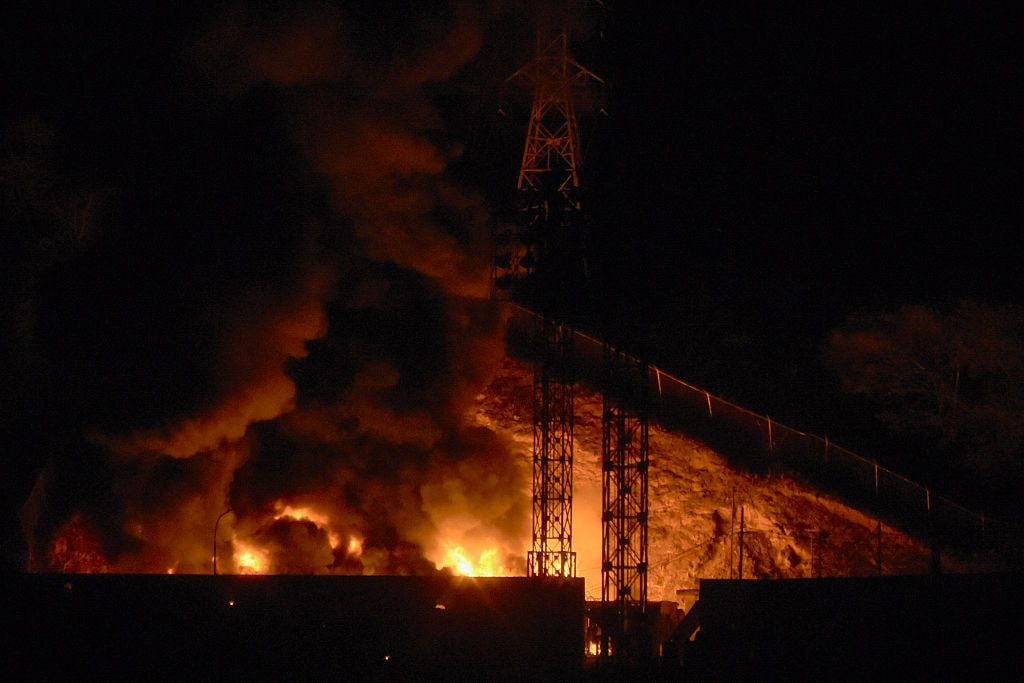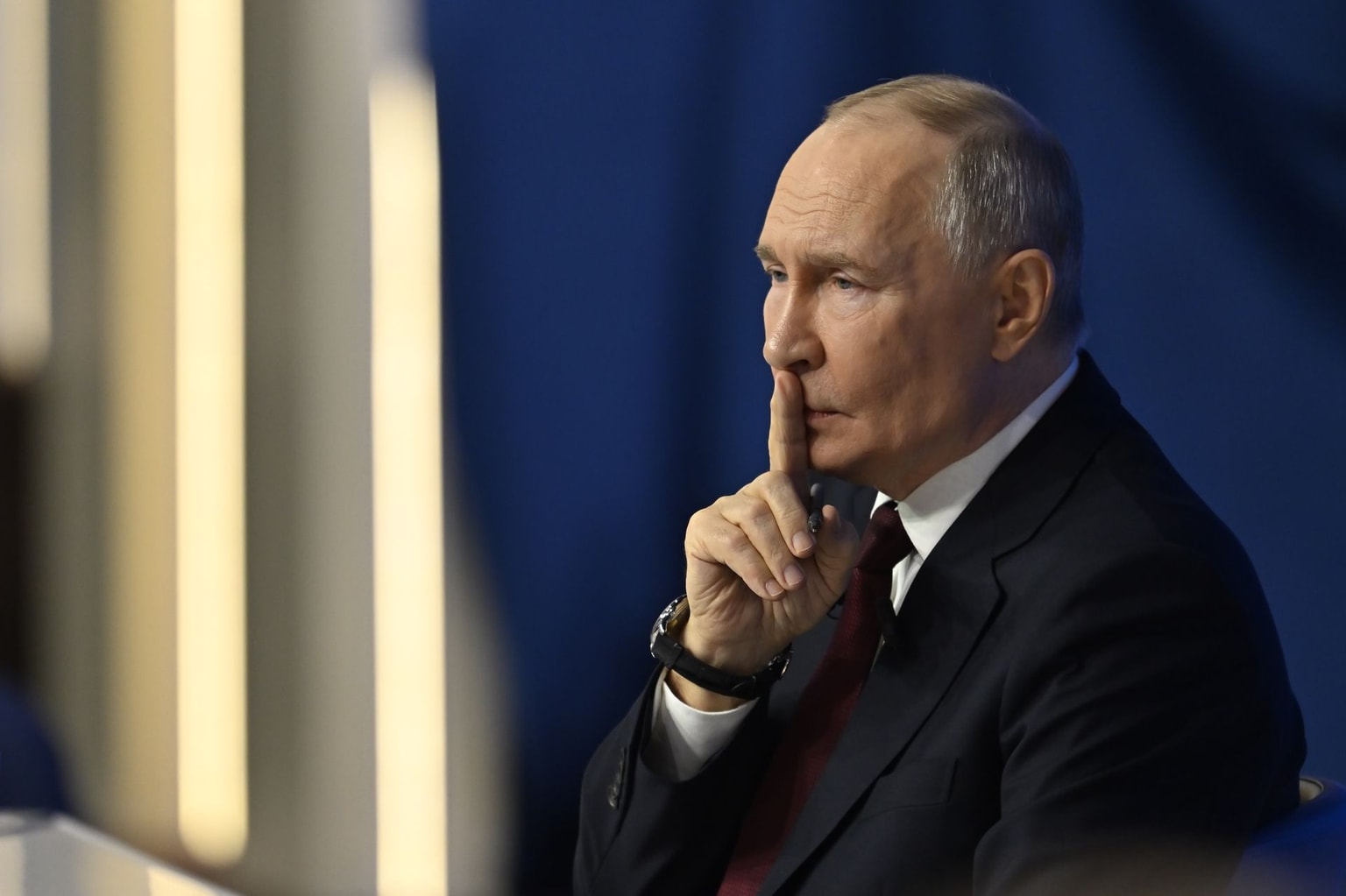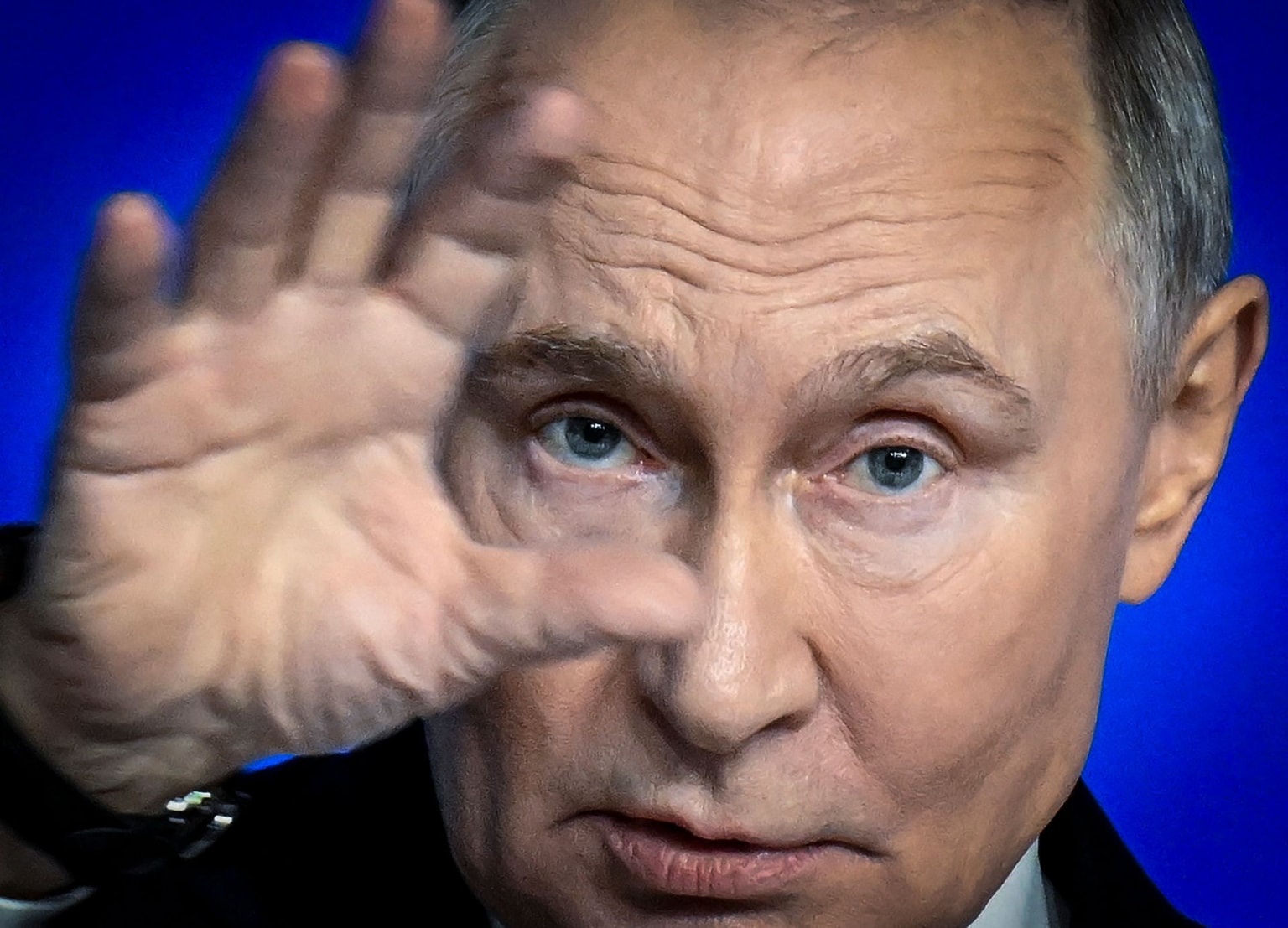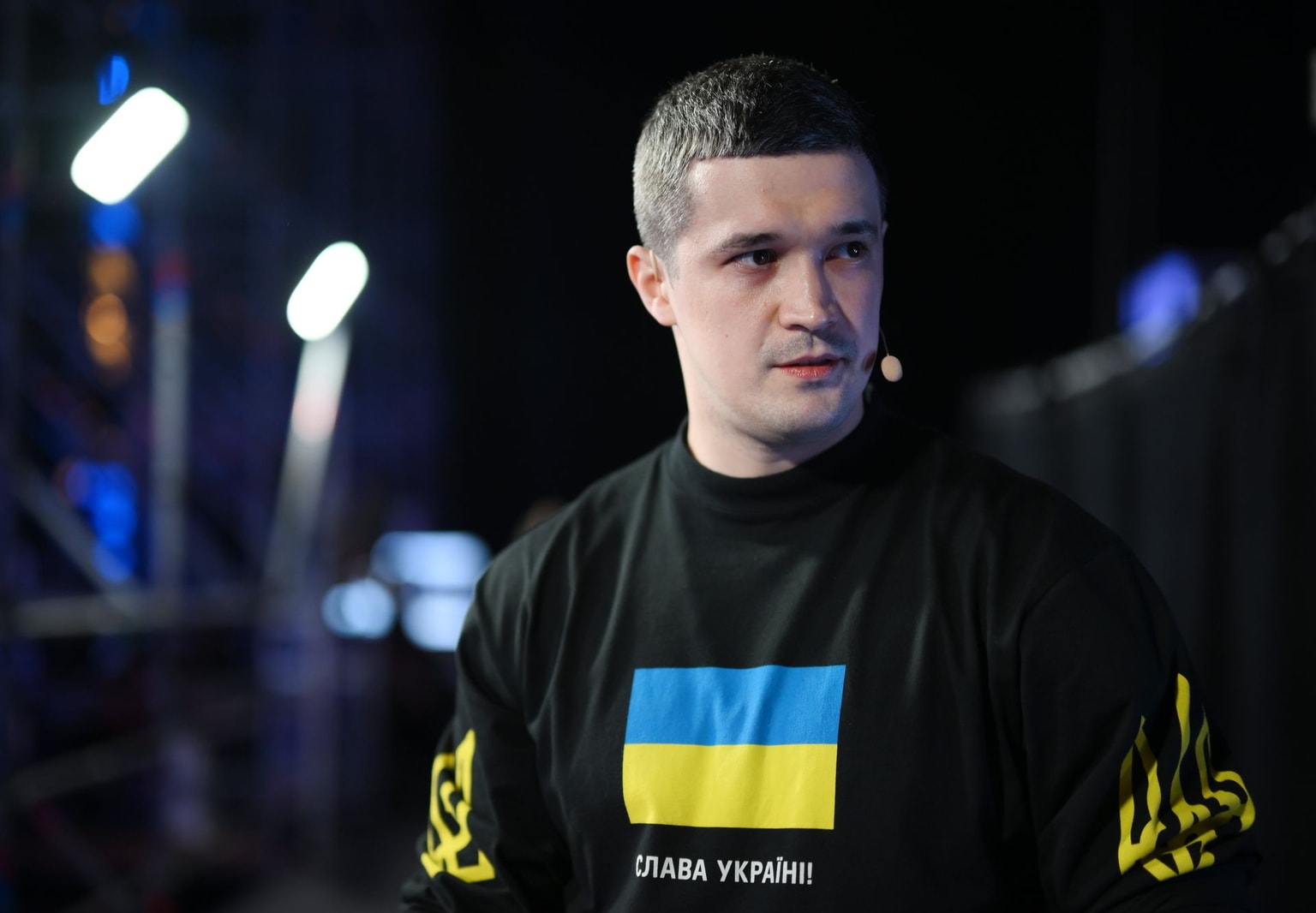Ukraine Business Roundup — EU gets tough on Russia’s shadow fleet

The following is the Dec. 18, 2024 edition of our Ukraine Business Roundup weekly newsletter. To get the biggest news in business and tech from Ukraine directly in your inbox, subscribe here.
The Council of the EU adopted on Dec. 16 its 15th package of sanctions against Russia since the start of the full-scale invasion, targeting Russia’s shadow fleet of tankers and its military-industrial complex.
Who and what do the new sanctions target? The new listings include 54 persons and 30 entities "responsible for actions undermining or threatening the territorial integrity, sovereignty and independence of Ukraine," the statement read.
The new package of sanctions targets shipping companies helping Russia to sell its crude oil, filling Moscow's coffers amid the full-scale war. The EU also banned 52 vessels transporting Russian oil above the $60-per-barrel price cap from accessing EU ports and services.
Russia has largely avoided the price cap by using a fleet of older, uninsured tankers, forcing the Western countries to tighten and refine the existing sanctions.
The latest package also targets a chemical plant, a Russian airline company providing support to the military, and several defense companies.
For the first time, the EU imposed “full-scale sanctions” — including a travel ban and asset freeze — "on various Chinese actors supplying drone components and microelectronic components" to Russia.
Individual sanctions include the Russian military unit responsible for a deadly strike against the Okhmatdyt children's hospital in Kyiv in July, top managers of energy companies, individuals involved in the deportation of Ukrainian children, dissemination of propaganda, and sanctions circumvention, and two senior North Korean officials.
The bloc further added 32 entities to the list of those directly supporting Russia's military-industrial complex, including companies based in China, India, Iran, Serbia, and the United Arab Emirates.
"This package of sanctions is part of our response to weaken Russia’s war machine and those who are enabling this war, also including Chinese companies," said Kaja Kallas, the EU's chief diplomat.
"It shows the unity of EU member states in our continued support to Ukraine. Our immediate priority is to put Ukraine in the strongest possible position,” she said, presumably ahead of potential peace talks or a ceasefire deal.

EBRD expands land-based transport coverage
The European Bank for Reconstruction and Development and the Aon risk management firm launched a 110-million-euro ($116 million) guarantee program to help insurers cover some war-related risks in Ukraine, the EBRD announced on Dec. 12.
Ukraine's insurance companies have struggled to offer war insurance services as international reinsurers have largely withdrawn from the market after the outbreak of Russia's full-scale war in 2022.
What will it cover? The program will help reinsurance companies cover risks connected to land-based transport, focusing on small and medium businesses. It currently does not extend to fixed assets or maritime transport as that is already covered mainly by the $50 million insurance facility for grain shipped via the Black Sea launched by the Marsh McLennan risk management firm.
The EBRD's facility was launched with the support of European donors and in partnership with the Ukraine-based insurance companies INGO, Colonnade, and Uniqua, as well as the international reinsurer MS Amlin, enabling the companies to ensure higher amounts.
The program does not include a pre-determined list of companies that will be involved, meaning that it will respond to market demand.

Art of the deal
Ukrainian authorities postponed signing an agreement with the United States on processing and extracting rare earth minerals, in order to let U.S. President-elect Donald Trump claim credit for the deal when he takes office, the New York Times reported on Dec. 14.
In a bid to secure Trump's support ahead of the inauguration, the Ukrainian government is appealing to Trump's ego and reputation as a businessman, the New York Times reported. One attempt involved delaying a significant minerals deal.
Ukraine, home to large deposits of critical minerals, including cobalt, graphite, and lithium, planned to sign the deal with U.S. President Joe Biden. U.S. Senators Lindsey Graham and Richard Blumenthal announced plans for the deal in August 2024 after their visit to Kyiv.
Ukrainian authorities then twice delayed signing the agreement, the NYT said, citing officials on both sides of the negotiations. The delays offer the opportunity for the Trump administration to claim an early victory at the start of his term.
"This war is about money," Graham told Fox News in November.
"So Donald Trump's going to do a deal to get our money back, to enrich ourselves with rare earth minerals. A good deal for Ukraine and us, and he’s going to bring peace."

Dangerously close
Metinvest, Ukraine's largest steel producer, has suspended operations at one of its sites at the Pischane coal plant near the front-line town of Pokrovsk in Donetsk Oblast, the company announced in a statement on Dec. 12.
Pischane is the largest coking coal producer in Ukraine, and one of the largest in Eastern Europe. The site provided half of Metinvest's coal volume used to produce steel at the company's many plants. The loss of the mine would be a major blow to Ukraine's steel production industry.
The closure comes amid an increasingly dangerous Russian advance towards Pokrovsk, a Ukrainian logistics hub. Ukraine lost key positions near the town to advancing Russian troops over the past day.
Metinvest said the closure of the mining site and an administrative building was a response to intensified shelling in the sector. There are three mining sites in the area in total.
The company also said the front line was expanding and moving closer to the mine. Core personnel have been evacuated along with their families, the statement said.
Metinvest will continue to monitor the security situation alongside local authorities, the company said. Decisions regarding the plant will be made as the situation on the front line evolves.
What else is happening
Ukraine's parliament supports bill on multiple citizenship in first reading
The Ukrainian parliament on Dec. 17 supported in the first reading a bill allowing multiple citizenship for Ukrainian citizens, lawmaker Yaroslav Zhelezniak said. The legislation lists permissible cases for holding multiple citizenship, simplifies procedures for foreigners to obtain Ukrainian citizenship, and establishes new grounds for losing citizenship, such as receiving a Russian passport or serving in the Russian Armed Forces.
Dutch Supreme Court dismisses Russia's appeal in Naftogaz's $5 billion arbitration case
The Supreme Court of the Netherlands rejected Russia's appeal against the Hague Arbitration Court's ruling requiring Moscow to pay $5 billion in damages to Naftogaz, the Ukrainian state-owned energy company said on Dec. 13. Russia was ordered to pay the sum as compensation for misappropriated assets in occupied Crimea. A tribunal ruled in February 2019 that Russia had expropriated Naftogaz's assets in Crimea in violation of the bilateral investment agreement between Ukraine and Russia.
Police raid Ukrainian Railways over suspected criminal scheme
Ukraine state-owned railway operator Ukrzaliznytsia employees are suspected of earning illicit gains by manipulating tickets offered for international travel. "The actions of the defendants led to significant losses and the creation of an artificial shortage of tickets for the most popular routes on the market," the police said in a statement on Dec. 11. Since Russia’s full-scale invasion of Ukraine in February 2022, trains became one of the primary and perhaps the easiest means of travel both within Ukraine and abroad, as airports remained shut, ratcheting up demand for Ukrainian Railways’ services.
Ukraine's tax hike, G7 loan enough for planned defense expenses in 2025, Finance Ministry says
To cover growing defense expenses, Ukraine’s government raised taxes for the first time since the start of the full-scale invasion, which included raising a war tax on personal income from 1.5% to 5% and introducing a war levy for small businesses and individual entrepreneurs. Separately, the G7's Extraordinary Revenue Acceleration (ERA) initiative is expected to bring an additional $50 billion to Kyiv's coffers. The loan will be covered by proceeds from the roughly $300 billion of frozen Russian assets, which amount to roughly $3 billion annually over 30 years.
Ukrainian airline SkyUp launches flights from Moldova in April 2025
SkyUp chose the Chisinau Airport in Moldova as it is the closest international hub to Ukraine, where airports are still shut due to the war. Chisinau is located nearly 70 kilometers (44 miles) from the Ukrainian border and roughly 180 kilometers (111 miles) from the nearest major Ukrainian city, Odesa, in southern Ukraine. Flights from Chisinau are scheduled to start in April 2025, and tickets are already available for booking from Dec. 11, 2024. The list of routes includes cities in Spain, Portugal, France, Greece, and Cyprus, as the statement read.












